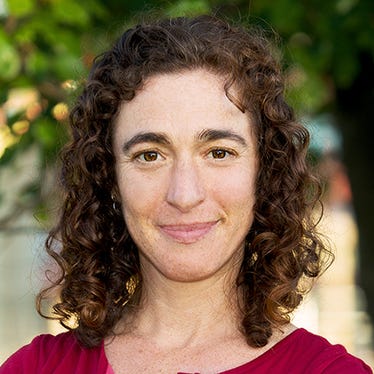GMOs 2.0: The coming wave of synthetic biology ingredients and what your company can do nowGMOs 2.0: The coming wave of synthetic biology ingredients and what your company can do now
Is the natural products industry the front line of entrance for synthetic biology ingredients into food and consumer products?

Genetic modification of plants, animals and even people used to be restricted to the realm of science fiction. Recent developments in genetic engineering, also known as “synthetic biology,” are rapidly entering the marketplace, driven and patented by biotech companies. Bioengineers are unleashing a new generation of technologies that enable them to artificially redesign life. For example, scientists are developing a new digital gene editing technique called “CRISPR," which has received a lot of media for its proposed precision and speed of change. Scientists are looking at using this technique to “redesign” life ranging from yeast, algae and seeds, to insects, animals and even people. CRISPR-assisted gene drive technology could propel mutations through populations in the wild, creating the potential to modify entire plant or animal communities over just a few years.
CRISPR is but one example of synthetic biology’s new, largely unregulated set of “extreme” genetic engineering techniques. Instead of swapping genes from one species to another (as in previous genetic engineering), synthetic biologists may draw from a variety of gene technology approaches. These can involve artificially constructing genetic material, such as DNA, in order to create entirely new life forms, as well as genetically “reprogram” existing organisms to produce a new type of life that behaves in new ways or that produces substances that it wouldn’t produce naturally.
For example, scientists have written entirely new genetic code on a computer, "printed" it out, and then inserted it into yeast organisms. This synthetic biology yeast then feeds on sugar and biomass to produce an artificial vanillin flavoring or stevia. Some investors and synthetic biology companies suggest that this is a simple process. However, in truth this emerging science is so complex that even the scientists who are developing synthetic biology do not fully understand it. We don’t know what the impacts and unintended consequences might be of the organisms and products with this artificial DNA to our health or our environment. There are no safety assessments specific to these new techniques and no regulatory oversight for a swiftly moving set of technologies that no one knows how to predict or control.
Where is it entering the market?
Researchers and the biotech industry are hailing synthetic biology as “the future of manufacturing, engineering and medicine.” The synthetic biology industry initially focused on developing organisms that would produce biofuels and chemicals. To date, this set of applications hasn’t been able to reach the scale needed to be profitable. In order to maintain the support of the investment community, synthetic biology companies are now focused on developing high-value, low-volume products—primarily personal care products and food.
The natural product industry is the front line for entrance of synthetic biology ingredients into food and consumer products, including synthetic substitutes for plant-based natural flavors, fragrances and oils. Next up will be additional ingredients ranging from synthetic biology seeds for a variety of common crops, new synthetic biology pesticides, animal replacement products, and more than 30 synthetic biology flavors and fragrances. One of the most prominent ingredients on the market is synthetic biology vanillin. More recently, Cargill and the synthetic biology company Evolva announced they would be commercializing synthetic biology stevia. Other controversial products include a replacement for coconut oil, patchouli oil and rose oil, orange and grapefruit extract, and squalene (a product used in moisturizers).
What are the concerns?
These new genetic engineering techniques present many of the same concerns as the first generation of GMOs. Like conventional GMOs, synthetic biology products are starting to enter the market without adequate health or environmental assessment, oversight or labeling—in fact, many are being marketed at “natural” and “sustainable.”
The currently commercialized applications of synthetic biology that are entering the market pose three big concerns: environmental contamination, the increased demand for unsustainable feedstocks and impacts on small farmers.
Environmental contamination is a concern to scientists all over the world. Synthetic biology organisms will inevitably escape into the environment—scientists are clear that there is no such thing as 100 percent containment. While some types of pollution can be cleaned up, organisms like algae, commonly used in synthetic biology production, are alive and self-replicate. Once in the environment, they may be impossible to recall or clean up. For farmers, synthetic biology seeds could exacerbate challenges already faced by non-GMO and organic farmers who want to avoid cross-contamination and have access to uncontaminated seeds. Other agricultural applications, such as gene drives, that are intended to wipe out wild organisms because they carry diseases or eat crops could have serious unintended ecological consequences.
As it is right now, synthetic biology cannot be considered a sustainable technology. Most currently commercialized synthetic biology products are produced by organisms that require sugar to live and reproduce. This sugar is produced from GMO corn or sugar cane, often grown on large-scale, chemical-intensive monoculture farms or plantations, which have a massive impact on biodiverse ecosystems due to harmful production practices. As the synthetic biology products industry expands in scale, so must production of these unsustainable feedstocks.
This technology will also have devastating impacts on small sustainable farmers across the world. Many synthetic biology products are intended as replacements for plant-based commodities currently produced by small farmers across the world, especially in developing countries, who produce vanilla, saffron, cacao, coconut, shea butter and stevia. Whole cultures and livelihoods will be undermined as these natural products are displaced by synthetic biology products, falsely labeled as “natural.”
How is synthetic biology muddying the GMO conversation?
Many of the same concerns with conventional genetic engineering still apply to synthetic biology, but these new techniques are more powerful, faster, and present a broader array of potential consequences. The new technologies are not just about engineering the final product—they are about designing entirely new processes, recoding organisms, plants and animals, or creating entirely new DNA that does not exist in nature.
We are hearing the same myths about this next generation of genetic engineering as we did about conventional genetic engineering techniques, and the myths don’t match the realities. We are told that genetic engineering is the key to a sustainable food future. But data has shown us that GMOs are not needed to feed the world and have actually exacerbated many of the environmental problems of industrial agriculture, from massive increase in use toxic herbicides to loss of pollinators.
We have been told that synthetic biology companies are transparent, but already there are companies that will not share the techniques they are using. They consider their patented techniques proprietary and can hide behind claims of Confidential Business Information. Their products are not labeled as genetically engineered, and instead may be misleadingly labeled as “natural.” No one wants to be a human guinea pig for ingredients that have been produced via genetic engineering without adequate safety assessment or labels. It’s clear that consumers want real transparency, and products that are truly natural and sustainable.
What can we do to hold biotech companies accountable for this new technology?
We need federal oversight and safety and health assessments specific to synthetic biology, a policy framework that specifically addresses the complexities and nuances of synthetic biology and all the ways it could be applied. We need federal oversight which requires robust assessment of environmental, health and socio-economic impacts and possible risks of production.
First generation GMOs are wrought with problems. To avoid repeating those and manifesting ones that are worse, we must have regulations in place before synthetic biology ingredients enter the market, and especially before they are marketed to us as “sustainable” in food and consumer products. Consumers want a truly responsible, transparent and healthy food system—healthy for the environment, our communities, our farmers, farmworkers and our bodies. A recent Mellman Group poll reported that nearly 9 out of 10 Americans want labels on GMO food. It’s clear that consumers want more information and transparency about how products are made, and in particular are concerned about GMOs. This new generation of genetic engineering—or GMOs 2.0—will be cause for even more concern among consumers.
While it is unfair that manufacturers and retailers may inadvertently be sourcing the synthetic biology ingredients that are rapidly entering the market without adequate assessment or labeling, and may have to take extra steps to avoid them, they are also on the front lines for potential consumer backlash.
That’s why it’s critical that companies across the supply chain, from suppliers to retailers, educate themselves about synthetic biology and take action to protect the integrity of the natural and organic products sector. Your voice is urgently needed to halt this flood of next generation GMOs, and right now there is an opportunity to write to the USDA and FDA to ensure that synthetic biology ingredients stay out of certified organic products and products labeled as “natural.”
Companies can also commit to keeping synthetic biology ingredients out of their supply chains and products in absence of safety assessment, oversight and labeling.
Unfortunately, it’s currently the “wild west” when it comes to this new set of technologies, but there is still time to be out in front of this wave of GMOs 2.0 and ensure that consumers can continue to trust your company to provide sustainable, healthy and transparent products they have come to expect.
For more information on synthetic biology, visit Friends of the Earth or SynbioWatch.
Dana Perls is a food and technology campaigner for Friends of the Earth, an environmental organization headquartered in Washington, D.C.
Save
Save
About the Author
You May Also Like





